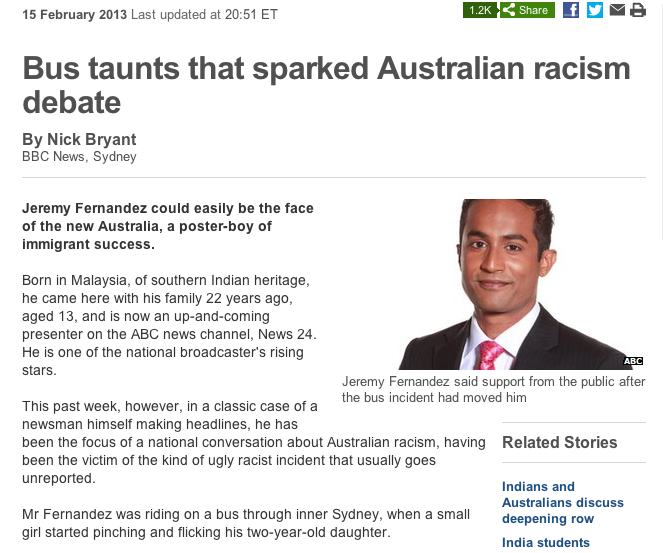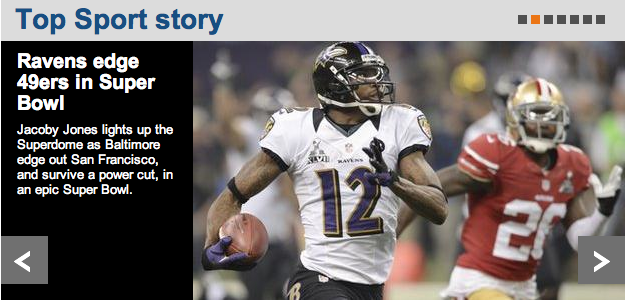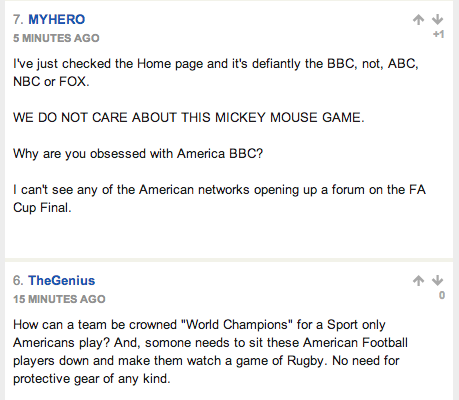I have always been a sports fan. I grew up playing sports, watching sports, and even spent some time coaching sports. From reading my bio it would be easy to assume I am a sports advocate who looks forward to each year's big events, such as Opening Day at Wrigley or the Superbowl.
But those days mean nothing to me. The day I most look forward to is the Oscars. The lights, the music, the dresses, the stories, and the outpour of love and appreciation. To me, the Academy Awards is the most special day of the year. It's what I know. When a friend asks "who's that?" I always have the answer. When they ask, "what movie is she from?" I start listing them off. Movies are my specialty, which may explain where my passion to find and tell peoples stories stemmed from.
Since my "bracket" consists of actors, directors, screen writers and costume designers, I consider myself a tough critic when it comes to evaluating news coverage of the Academy Awards. And I will be honest, if I was the academy and the BBC was Ben Affleck, the BBC would not be one of my nominees for best news coverage. Although the Brits have provided a number of award-winning actors and actresses to American films, they are known to be perfectly content with their own film production companies, which is why I was shocked by the BBC's mass online coverage of the 2013 Oscars.
The BBC was on top of its' game for the pre-coverage on the red carpet. As soon as my night started (5 p.m. CST), I logged on to the BBC's website to start my critique. When I got to the homescreen I saw a slideshow with the first story featuring a picture of Best Actress Nominee Jessica Chastain's face. As the night went on, more stories were added and by the time the award ceremony ended, each picture on the slideshow led the reader to a story in association with the Academy Awards. I was impressed by the BBC's emphasis on the importance of the award show seeing as there were no British films nominated for an award this year.
In my last post I complained about the BBC's lack of feature stories, and nagged on about my want for feature stories to be easily accessible through the BBC's home page. The Web designers must have heard my request, because an entire sidebar was dedicated to features on the Oscars News tab. The addition of feature stories was a smart decision by the BBC because it familiarized its audience with the nominees.
In addition to creating a large presence of followers through its use of feature stories and home page headers, the BBC did an excellent job of live tweeting from the Dolby Theater in Los Angeles, CA. There have been claims that more than 1 billion people were watching the award ceremony tonight, but not everyone in England wanting to watch the Oscars could commit to watching it in the wee-hours of the morning. Providing live coverage from the event through twitter will provide a quick and easy update of the winners, scandals and falls that took place as many of their followers were sleeping.
By the end of the show, every article and picture on the BBC website was centered on the Academy Awards. There were reviews of the winners, a picture slideshow, links to blogs and videos. In this particular situation, I don't have as much to complain about as I initially thought I would. The BBC delivered news-worthy content through the use of multi-digital platforms and created a tab specifically for that coverage. It was easily accessible, informational, entertaining, and enjoyable to be on the website during my five-hour long commitment to my couch. The BBC's coverage of the Academy Awards once again reassures me of its dedication to finding good stories and reporting them truthfully and objectively. For future coverage of the Academy Awards, I know I will be starting and ending my nights with the BBC.
But those days mean nothing to me. The day I most look forward to is the Oscars. The lights, the music, the dresses, the stories, and the outpour of love and appreciation. To me, the Academy Awards is the most special day of the year. It's what I know. When a friend asks "who's that?" I always have the answer. When they ask, "what movie is she from?" I start listing them off. Movies are my specialty, which may explain where my passion to find and tell peoples stories stemmed from.
Since my "bracket" consists of actors, directors, screen writers and costume designers, I consider myself a tough critic when it comes to evaluating news coverage of the Academy Awards. And I will be honest, if I was the academy and the BBC was Ben Affleck, the BBC would not be one of my nominees for best news coverage. Although the Brits have provided a number of award-winning actors and actresses to American films, they are known to be perfectly content with their own film production companies, which is why I was shocked by the BBC's mass online coverage of the 2013 Oscars.
The BBC was on top of its' game for the pre-coverage on the red carpet. As soon as my night started (5 p.m. CST), I logged on to the BBC's website to start my critique. When I got to the homescreen I saw a slideshow with the first story featuring a picture of Best Actress Nominee Jessica Chastain's face. As the night went on, more stories were added and by the time the award ceremony ended, each picture on the slideshow led the reader to a story in association with the Academy Awards. I was impressed by the BBC's emphasis on the importance of the award show seeing as there were no British films nominated for an award this year.
In my last post I complained about the BBC's lack of feature stories, and nagged on about my want for feature stories to be easily accessible through the BBC's home page. The Web designers must have heard my request, because an entire sidebar was dedicated to features on the Oscars News tab. The addition of feature stories was a smart decision by the BBC because it familiarized its audience with the nominees.
In addition to creating a large presence of followers through its use of feature stories and home page headers, the BBC did an excellent job of live tweeting from the Dolby Theater in Los Angeles, CA. There have been claims that more than 1 billion people were watching the award ceremony tonight, but not everyone in England wanting to watch the Oscars could commit to watching it in the wee-hours of the morning. Providing live coverage from the event through twitter will provide a quick and easy update of the winners, scandals and falls that took place as many of their followers were sleeping.
By the end of the show, every article and picture on the BBC website was centered on the Academy Awards. There were reviews of the winners, a picture slideshow, links to blogs and videos. In this particular situation, I don't have as much to complain about as I initially thought I would. The BBC delivered news-worthy content through the use of multi-digital platforms and created a tab specifically for that coverage. It was easily accessible, informational, entertaining, and enjoyable to be on the website during my five-hour long commitment to my couch. The BBC's coverage of the Academy Awards once again reassures me of its dedication to finding good stories and reporting them truthfully and objectively. For future coverage of the Academy Awards, I know I will be starting and ending my nights with the BBC.



 RSS Feed
RSS Feed